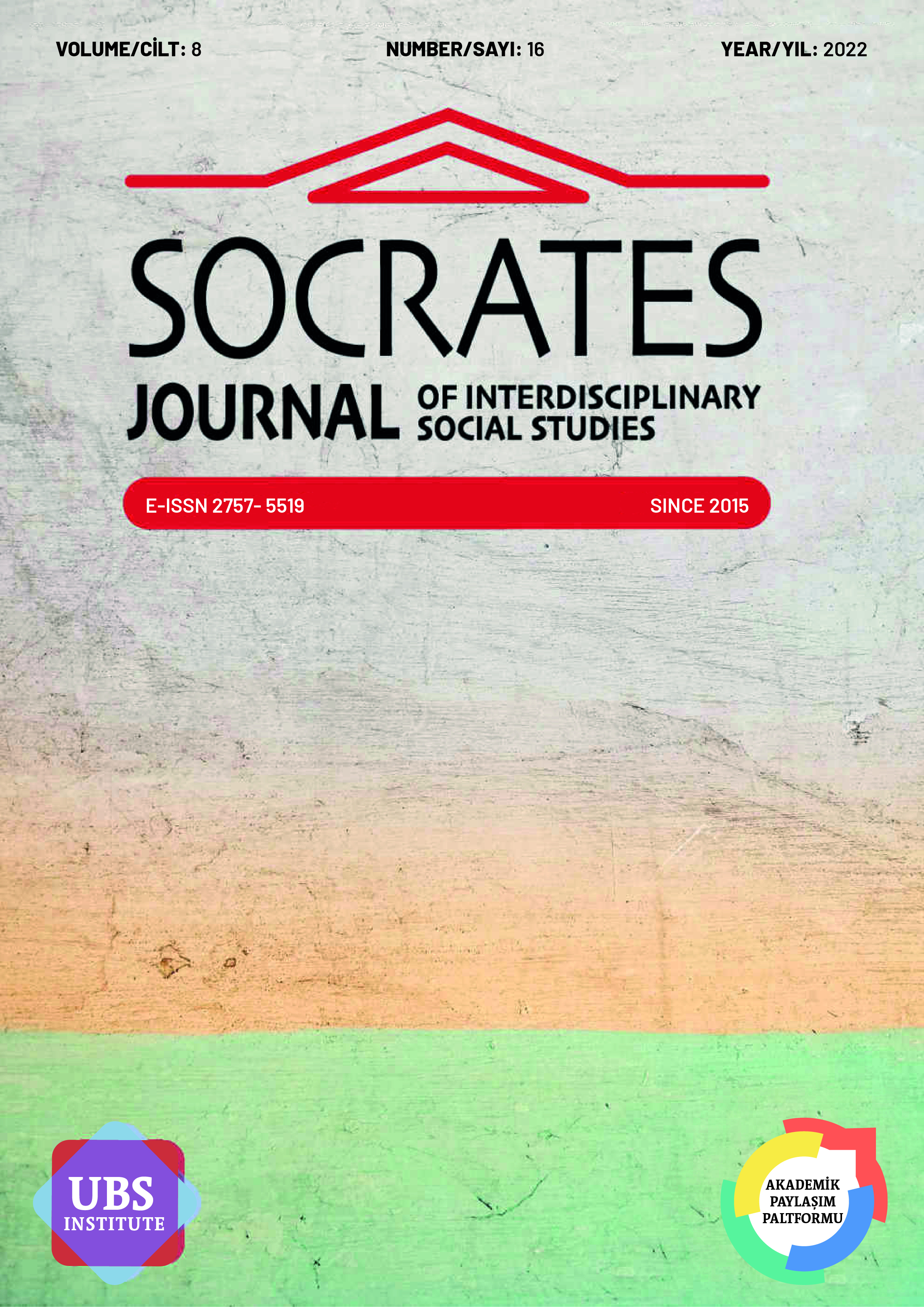COMPARISON OF THE PSYCHOLOGICAL WELL-BEING LEVELS OF FATHERS AND THE PROBLEM-SOLVING SKILLS OF THEIR CHILDREN AT PRIMARY EDUCATION LEVEL
DOI:
https://doi.org/10.51293/socrates.220Anahtar Kelimeler:
Problem Solving, Psychological Well-Being, Father-Child Relation.Özet
The father's influence on the child's mental, socio-emotional, and sexual identity development has been clearly expressed (Kuzucu, 2011). It is seen that children who interact with their fathers are more skilled in displaying their intelligence level, creative thinking level, and ability than children who do not interact with their fathers (Poyraz, 2007). This study, it was aimed to compare the psychological well-being levels of fathers and the problem-solving skills of their children, who were studying at a primary school. The sample consisted of 161 students studying in the 4th, 5th, 6th, 7th, and 8th grades of primary education, and 161 fathers of these students.As a data collection tool, a personal information form and the 'Psychological Well-Being Scale for Married Women and Men (PIOS)' Inventories were applied to the fathers, and the 'Problem Solving Inventory for Primary School Children' (PPI) was applied to the children. Kruskal-Wallis and Mann-Whitney U tests were used to determine whether there was a significant difference between the variable values. No significant difference was found between the variables. However, significant differences were found between some of the sub-scales and some demographic variables.
İndir
Yayınlanmış
Nasıl Atıf Yapılır
Sayı
Bölüm
Lisans
Telif Hakkı (c) 2022 Socrates Journal of Interdisciplinary Social Studies

Bu çalışma Creative Commons Attribution 4.0 International License ile lisanslanmıştır.


